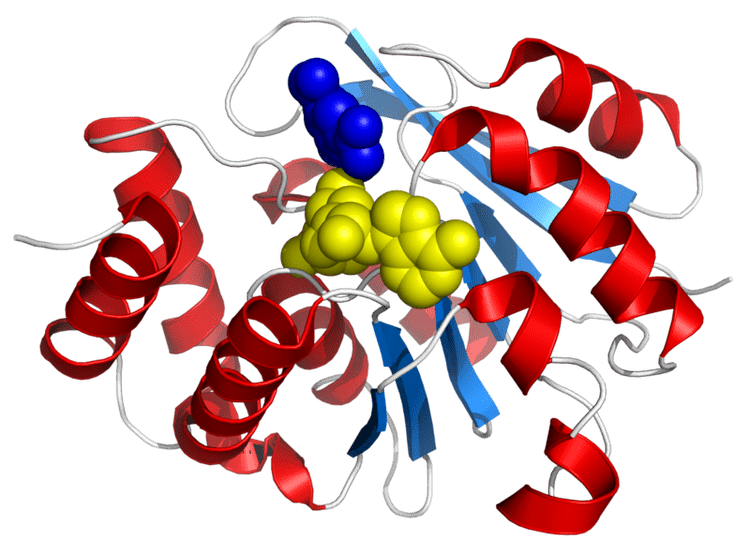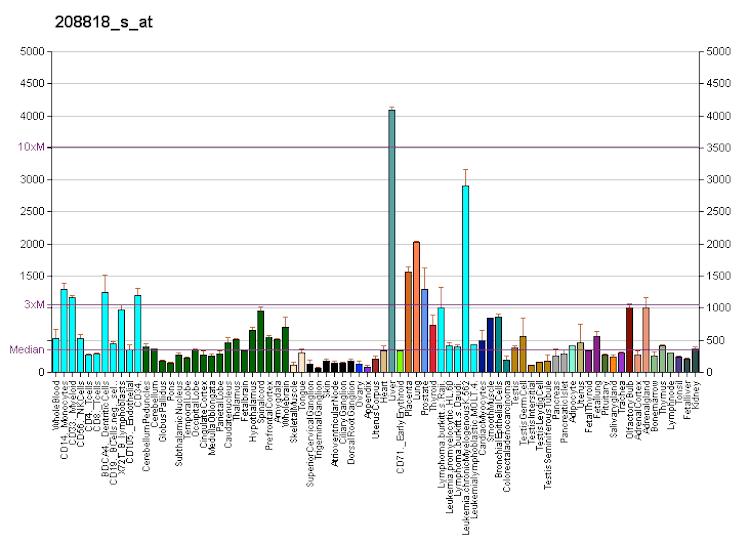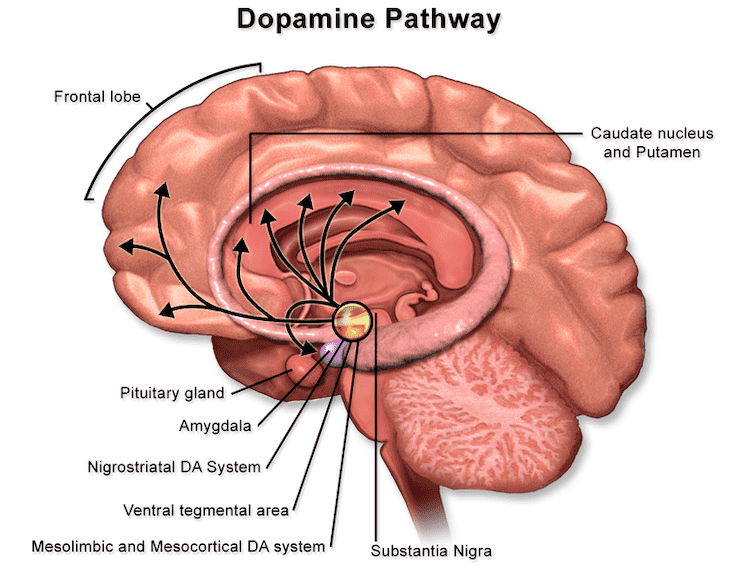How The COMT Gene Influences Your Stress Response And Brain Function On A Daily Basis
All types of events produce stress in our lives—from performances at work and school to major life changes, we’re all called upon to adapt to these situations and meet challenges head-on.
Stress can make an impact on our bodies that brings beneficial changes to our biochemistry, but it can also do damage to our physical and mental health. Knowing what your threshold for stressful stimuli is will help you to understand how to take advantage of those situations that can make you stronger, as well as reduce the damaging effects of other types of stress that you must experience.

Genes And Stress
Due to our individual biochemistry, we all tend to experience stress a little differently. Certain genes in our DNA make us more or less susceptible to the effects of stress. Each of us has a particular genetic capacity to detoxify and release so-called “stress chemicals” that are present in the body and brain each time we experience an event. These chemicals, also called catecholamines, are present in each one of us in specific ratios and must be released in a detoxification process known as the methylation cycle for us to experience a physical resolution to stressors. Looking at the COMT gene and how it influences our brain in times of stress will give us valuable insight into the delicate balance that we must strike between “not enough” stress and “too much” stress to promote optimal brain function.

COMT: Understanding The Brain’s Response To Stress
The COMT gene, otherwise known as the Catechol-O-Methyltransferase gene, is primarily responsible for the breakdown and metabolization of known stress chemicals—dopamine, epinephrine, and norepinephrine. This COMT gene has a significant impact, then, on how we handle life’s stressful events.
Some people, when dealing with stressful events, rise to the occasion, bringing their best game and flourishing under pressure. Others melt like snowflakes on a hot sidewalk—what is the variable here? Scientists theorize it all has to do with the type of COMT gene expression in your unique DNA and how this expression plays out in your brain as you experience increased heart rate, faster brain wave activity, and more perceived stimuli coming your way in the form of a stressful event.
Gene Expression: How Our Makeup Predicts Our Response
Genes are categorized into two types of expression—homozygous and heterozygous. When two copies of a COMT gene are considered homozygous, both copies are either dominant or recessive in their expression. Heterozygous genes are expressed as one dominant and one recessive. Interestingly enough, almost 80 percent of people are known to have some sort of polymorphism, or genetic variable, in the COMT gene that slows down the COMT processing system by almost 300 percent. Let that sink in for just a minute…what we are learning about the response to stress for most of us is that it is not nearly as efficient as it should be, living in our current state of affairs.
Does this mean that 80 percent of us are prone to collapsing into “stress-mess” heaps at the slightest hint of adversity? Perhaps…but what we are quickly learning about gene expression is that it may be a predictor of biogenetic activity, but it is not an absolute. Certain changes in lifestyle, changes in perception, and other variables can help us to overcome our genetic anomalies and give us hope that we can “train” ourselves for stress success.

COMT And The Catecholamine Bell Curve
Your COMT system helps you to break down and efficiently use catecholamines to help deal with stress. Believe it or not, your brain actually craves these stress chemicals to a certain extent in order to function optimally. Your brain performs best when you have just the right amount of catecholamines present, with dysfunction falling on either side as you manifest too few or too many stress chemicals. Let’s take a look at how this manifests in your experience when you have an imbalance of catecholamines:
Low Catecholamines
When dopamine levels are low, it causes a depression of the frontal lobe, and the neocortex of the brain cannot function normally. Symptoms of low catecholamine production include:
- Anger
- Impulsivity
- Substance abuse and addiction
- Cravings
- Irrational behavior
High Catecholamines
Conversely, if dopamine levels are too high, it causes overstimulation of the neocortex, causing the brain to overload and begin to shut down. Symptoms of high catecholamine production include:
- Chronic pain
- Anxiety and worry
- Tachycardia
- Delerium or paranoia
- High blood pressure
- Insomnia
- Schizophrenia or psychosis
When dopamine levels are balanced and optimized, your brain is in a state of optimal function. You are able to function well under pressure, and both brain and body know what to do to release the harmful effects of these stress chemicals and find a state of calm homeostasis once more.

You Say Dopamine Like It’s A Bad Thing
Remember, it is not necessarily detrimental to have moderate levels of dopamine floating around in your system; adequate or slightly higher levels of dopamine have been connected to higher executive function, better cognition, and improved memory. The problem with dopamine is when it falls on either side of the “too much” or “too little” category; your body may not be able to process it efficiently in times of stressful activity. Taking a look at the three types of COMT gene expression, we see that it manifests in different ways:
COMTV158M-/- For individuals with this genetic makeup, their levels of dopamine are lower at a steady, resting rate. They are able to handle multiple stressors at one time without experiencing adverse physical or mental consequences.
COMTV158M+/- These individuals live in the middle with regard to being able to handle stress with minimal consequences. Their COMT processing system is slightly slower than that of the first group, yet they are better able to handle stressful events than our “positive” counterparts.
COMTV158M+/+ Having the slowest processing time, these individuals have the highest amount of dopamine at a steady, resting rate. While they may be perceived as high-functioning, intelligent, and clear thinking during peaceful times, they are the most disposed to cognitive shutdown when exposed to stress and can succumb to many stress-induced illnesses.

COMT And The Emotions
Emotional issues and imbalances are prevalent in those of us with COMT polymorphisms. As the brain becomes less functional, there is a tendency toward more emotional volatility. Think of a healthy brain as a parent or caregiver; they help to regulate an unruly child’s emotions and help them to process emotions in a more balanced manner. When the neocortex—or caregiver of the brain—is shut down or disabled, it gives way for the baser instincts of the brain to show themselves. The result is a few more episodes of emotional dysregulation and irrational behavior.

Working With COMT And Your Genetic Expression
Anytime we look to improving brain function, we must start with the health of the gut. There is an INTIMATE connection between the health of your microbiome and your brain; the COMT is responsible for breaking down stress hormones, so we must work to calm the body through restoring health to the gut and strengthening our immunity. More information can be found here on restoring gut health for the purpose of improving brain function.
You Are Your Genes… But You Can Change Your Genetic Destiny!
Stress is a powerful part of life, one that it is difficult to separate from completely. Knowing more about the role that your COMT gene plays and how it is expressed in your life will allow you to make essential decisions regarding self-care, stress management, and creating a quality life for you and for your loved ones.
